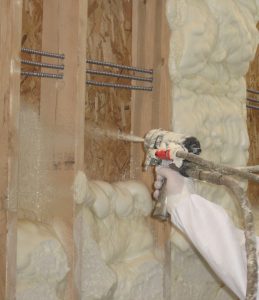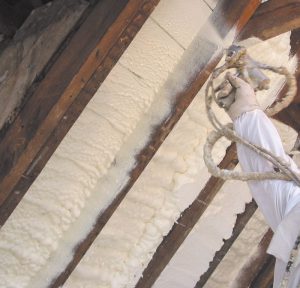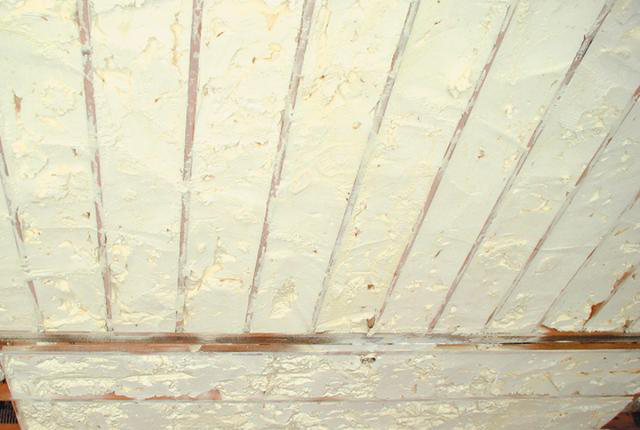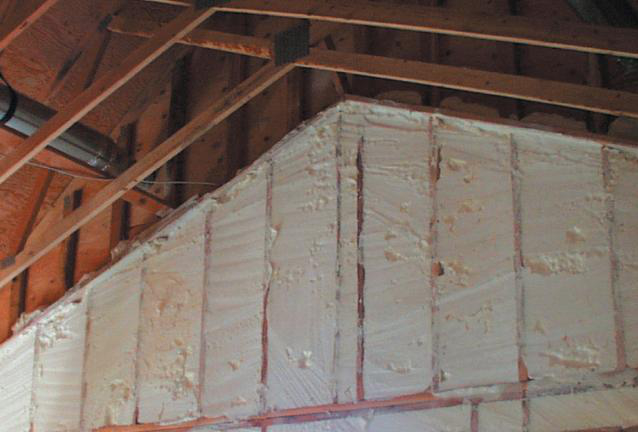



Owens Corning Insulating Systems, LLC is a manufacturer of durable, high-quality fiberglass products and does not sell or endorse other insulation industry products.
CALL FOR A FREE ESTIMATE: (618) 286-3355
Make a Payment
While thermal protection is important in keeping your home comfortable, adding the benefit of an air seal complements your insulation efforts for complete protection. Spray foam insulation not only offers needed thermal protection, but also provides a tight seal that does not allow air leaks, which can account for up to 40% of a building’s energy loss. At Goley Insulation, we offer both closed cell and open cell spray foam insulation solutions. Closed cell spray foam and open cell spray foam have slightly different characteristics, but both offer unmatched R-value per inch, making your home or business as comfortable, quiet and energy efficient as possible. Goley is the trusted St. Louis insulation contractor for installing spray foam in both residential and commercial structures.
At Goley, we trust spray foam for our residential and commercial projects.
Spray foam insulation is sprayed on as a liquid and quickly expands to completely fill the space between cavities. This method/material will fill in the spaces that can cause a home to lose energy such as around can lights which can leak conditioned air into an unconditioned attic.
This is a popular energy saving choice in insulation. Acting not only as an insulator but also as an air barrier, spray foam insulation offers superior protection by sealing the building envelope. Minimize air leakage with this approach for optimal air tightness in your home and seal the gaps and cracks that leak conditioned air. We offer both open and closed cell products. Closed cell foam and open cell foam have slightly different characteristics, but both offer unmatched R-value per inch, making your home or business as comfortable, quiet and energy efficient.
Review the differences between closed cell and open cell spray foam:

Open-cell spray foam insulation is 100% water-blown and does not produce harmful emissions once it is cured. As an air barrier, spray foam insulation helps to minimize the intrusion of outdoor allergens, odors and pollutants and works with proper mechanical ventilation to let occupants control the quality of the air they breathe. Open cell spray foam insulation does not support mold and is water vapor permeable, which allows moisture to naturally dissipate from a home rather than becoming trapped.
Spray foam’s air-sealing qualities have a significant effect on unwanted sound that penetrates a home. This can be a significant advantage for buildings in high-traffic areas. Open-cell insulation can help soundproof interior walls to stop the flow of sound between rooms. It is ideal for places such as entertainment rooms, washrooms and bathrooms.
By minimizing random air leakage, which is the source of up to half of a building’s energy loss, spray foam insulation delivers heating and cooling savings. Closing the areas where air is leaking out of your home makes a huge difference in a place like St. Louis, which experiences both hot summers and cold winters. You will notice the difference in your energy bill almost immediately. Plus, once installed, spray foam moves with construction as it ages, providing leak protection for the life of the building.




Owens Corning Insulating Systems, LLC is a manufacturer of durable, high-quality fiberglass products and does not sell or endorse other insulation industry products.